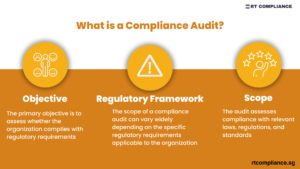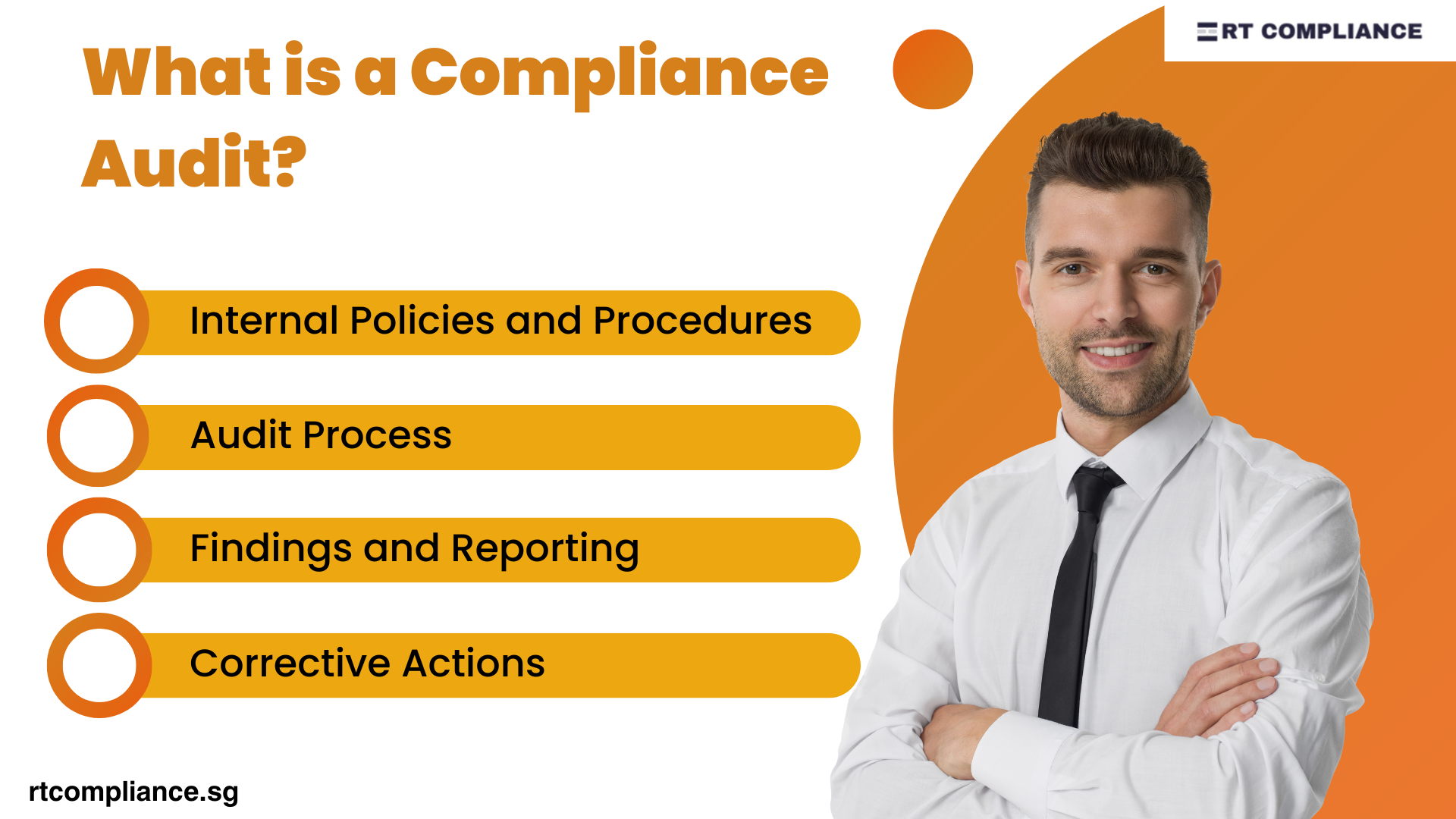What is a Compliance Audit? – Understanding Regulatory Compliance Audits in Singapore
Singapore is among the best places to start a business globally. Why is that? It has a supportive government that encourages locals and foreigners to invest in companies in the country. A compliance audit is an assessment of a business to check applicable laws, rules under the many orders, and all the instructions by Singapore’s authority are followed.
Its crucial role is to assure the government that all the set rules and regulations of various agreements. For instance, if a company needs to report the income of staff members. The government might request an audit to check all the employees and the wages to ensure that the taxes are correct. There can be several audits in a company by various entities depending on the subject in question.
Importance of Compliance Audit in Singapore: Why Businesses Need It
Compliance audits in Singapore are essential for businesses to stay aligned with regulatory compliance requirements. Companies may face frequent compliance audits if they have a history of legal violations or poor internal controls. A compliance audit may occur once in a while to ensure that the business moves in the right direction. For instance, a textile company in Singapore may occasionally undergo auditing to ensure that it poses no danger to the environment since it is famous as an environmentally harmful firm.
Compliance audits don’t only check on an environment but are used to monitor internal affairs to determine if things can be better. As a result, it is a crucial tool that companies can use to improve customer services, increase revenue and improve the operations in a company.
Compliance Auditing in Singapore – Laws, Regulatory Bodies, and Processes
Singapore Companies Act is in charge of companies’ conduct. It requires them to comply with an annual filling of the IRAS (Inland Revenue of Singapore) and the ACRA (Accounting and Corporate Regulatory Agency. Locals and foreigners must ensure that their services are registered so that they match the relevant rules.
FYE (Financial Year-end) in Singapore Compliance Audit
The Singapore government requires that all the companies determine the FYE, often determined on the last day of a financial year. Most of the firms choose to perform to determine the FYE on December 31, while others prefer the last day of any quarter. Singapore Regulatory framework uses the FYE to determine if a company is eligible for any tax incentives. The current laws state that any company can get a 75% tax relief on the first S$100,000, viable for the first three years after founding it. Also, the next S$100,000 receives 50% tax relief.
Who Needs a Compliance Audit in Singapore?
Every private company must audit its financial reports by a public accountant annually. After a company registers under Singapore law, it needs to appoint a qualified auditor by the end of three months unless the exemptions, including annual turnover, are below S$5 million, and shareholders are below twenty. Also, the shareholders are people and not corporate investments.
Singapore is strict with the regulations to ensure maximum transparency; hence if a company is non-compliance, it stands the chance of summons, fines, and arrest warrant.
Types of Compliance Audits Relevant to Businesses in Singapore
In Singapore’s strictly regulated business space, companies undergo several compliance audits to ensure that they are within their legal and industry requirements. It is important for businesses that want to remain transparent and not face penalties while making stakeholders trust them to have the knowledge of the types of compliance audits.
One such common one is the regulatory compliance audit which looks to see whether a firm is compliant with statutory regulations as set out by bodies such as ACRA, IRAS, MAS and the PDPC. These audits usually require looking into tax filings, corporate governance and regulatory filings to be fully consistent with Singapore laws.
Internal compliance audits are covered by a firm’s internal audit team, which can be used to assess the internal controls, the procedures for risk management and how they conform to in house policies. Such proactive audits assist in the realization of problems and solutions before they become a case of regulatory breaches.
Those external compliance audits are conducted by independent third-party audit firms in order to give an independent assessment of compliance. These are usually asked for by regulatory bodies or by the investors and give credibility to the business.
Industry-specific audits are also common. For instance, the finance sector businesses are to carry out Anti-Money Laundering (AML) Compliance Audits while businesses that handle personal data are required to undergo Data Protection Compliance Audits under the PDPA. For the companies falling under the category of manufacturing or logistics, there will be environmental compliance audits, and all employers should follow the standards of labour law compliance in terms of wages, working hours, and employee rights.
Knowing these various audit types will help to enable businesses in Singapore to be proactive in their risk management, build operational integrity, and stay ahead of the changes in regulation.
The Indispensable Benefits of Conducting a Compliance Audit for Your Singapore Business
As much as conducting a compliance audit is legally required in Singapore, it’s a strategic move that has long-term rewards for your business. Given the rigid regulatory system of Singapore, companies have to do a continuous check to make sure they are strictly abiding by the law and standards stipulated by bodies such as ACRA, IRAS, MAS and the PDPC. A properly implemented regulatory compliance audit helps you comply with the stated requirements, prevent penalties, fines, or damage to reputation.
The first of the key benefits is risk mitigation. Conduction of a compliance audit is useful for businesses to identify lack of internal procedures, financial reports, and compliance with financial regulations. By bringing the issues to light early on, companies will be able to respond to such issues proactively before it degenerates into bigger problems.
Another big benefit is enhanced corporate governance. An audit provides accountability over the departments and increases the transparency in decision-making. This is especially critical to startups and SMEs that are seeking capital from investors whereby, investors sometimes take into consideration a company’s compliance history as part of their due diligence process.
Compliance audits also improve operation efficiency. By way of routine assessments, businesses can optimise processes, trim off redundancies and standardise workflows according to industry best practices. In such industries as finance, healthcare, and data services, in addition to such compliance audits as AML, PDPA, the industry-specific compliance audits further guarantee the ethical and lawful work.
Eventually, through regular audits, there is a culture of integrity and compliance. This does not only shield the company from legal risk but also boosts investor and customer confidence, a prerequisite for growth in the highly competitive business environment in Singapore.
Conclusion
A compliance audit is essential and ensures transparency in the way businesses operate in Singapore. The current regulatory framework sets up the necessary compliance audit guidelines to ensure companies run smoothly.






